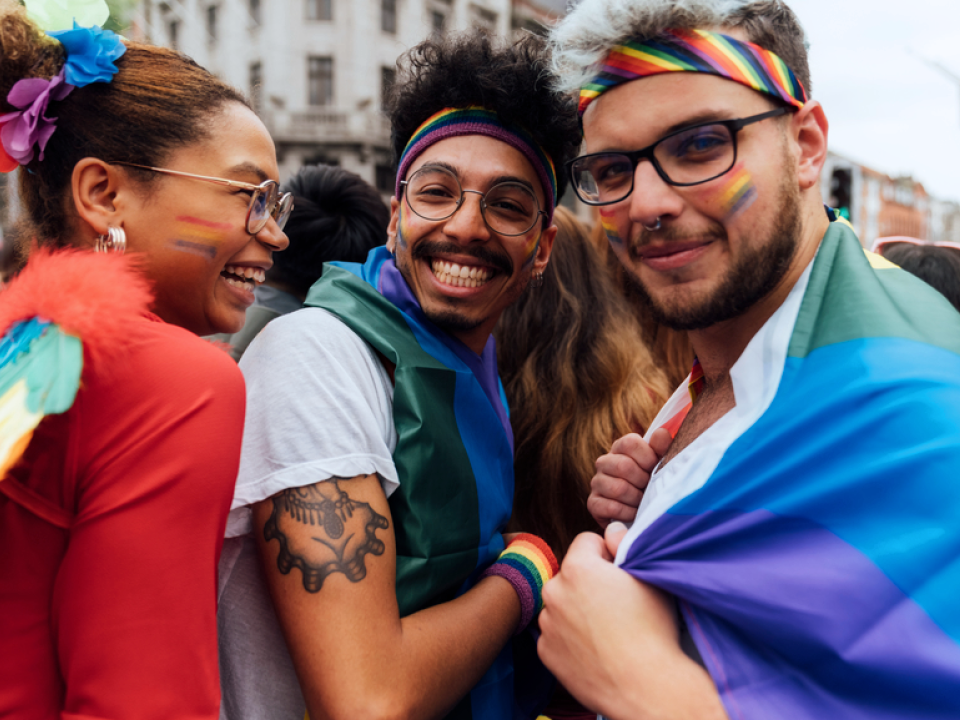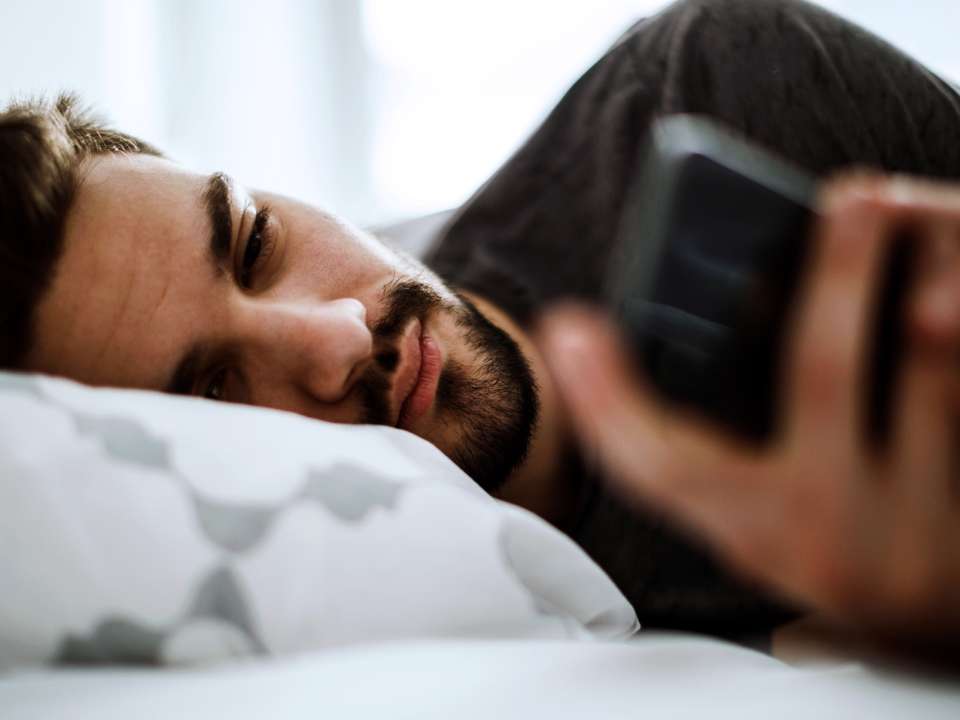What to Do If You’re Feeling Anxious About the Coronavirus

Feeling anxious about coronavirus? You definitely aren’t alone.
You know doctors, researchers and public health officials are working hard to keep the community safe. You know you’re taking safety precautions. But still, you’re anxious.
It’s not just the virus and the deaths it has caused that are upsetting. It’s the way some fears are fueling racism. It’s wondering if your parents or elderly neighbors will be safe.
And it’s not knowing how bad the outbreak will get or when it will be ove.
“It is normal for people to experience anxiety related to the coronavirus outbreak given that it is a constantly changing situation with uncertainty about what is coming next,” says Doyanne Darnell, a clinical psychologist and clinical director of psychosocial services at Harborview Medical Center.
While any fears you have about COVID-19 are understandable, they don’t have to derail your life. Here are some tips from experts for managing your coronavirus anxiety.
Have a plan
While you can’t control what happens during the outbreak, you can control how you respond to it. We’re talking about making an emergency preparedness plan.
What will you do if your child’s school stays closed for longer than anticipated? If you have to take on extra work because coworkers get sick? If you or a family member start feeling ill?
You can’t stop these things from happening, but if you have a plan in place for how you’ll deal with them, you’ll feel a lot more prepared. Planning can also make you feel less anxious because you’re taking action instead of just sitting around worrying.
If you’re not sure where to start, the Centers for Disease Control has a thorough list of all the different factors you should consider when developing a plan for your household.
Once you create a plan, stick to it. Try to avoid second-guessing your decisions, recommends Dr. Jennifer Erickson, a psychiatrist who sees patients at UW Medical Center – Montlake and the UW Neighborhood Clinics. Obsessing over your plans is not a productive use of time and it won’t make you feel any better.
Talk with someone
Social distancing can be very important for stopping the spread of the virus, but it’s not always great for mental health.
Connecting with friends and family via text, phone or FaceTime can be a helpful way to share in each other’s concerns, show empathy and vent — as long as you aren’t just feeding into each other’s fears.
“Hopefully you can calm each other down rather than make each other more anxious,” says Dr. Jürgen Unützer, a psychiatrist and chair of the Psychiatry and Behavioral Sciences Department in the UW School of Medicine.
If you notice a friend is starting to catastrophize and go down a rabbit hole of COVID-19 conspiracies, help correct erroneous information and share concrete, helpful tips, like proper handwashing guidelines or other actions people who are worried can take now.
If you’re already seeing a therapist, COVID-19 is a great topic to bring up during your next session. If you aren’t and if your anxiety is getting the better of you, you may want to talk with a therapist or maybe try a therapy app.
Gauge your reaction to the news
We all respond to social media differently. Some of us find it comforting to stay up to date on the latest COVID-19 news, whereas others get anxious when we notice we’re caught in a cycle of endless scrolling.
“For many people, making sure we have good information is helpful, but it can be unhelpful if we spend all day reading tweets and blogs, especially those from non-reputable sources over and over,” Unützer says.
Pay attention to how you feel while using social media and reading the news. If you notice a sinking feeling in your chest whenever you scroll through your Facebook feed or get a jolt of anxious jitters when a new breaking news alert pops up, perhaps it’s time to take a break.
If you don’t want to be out of the loop entirely, make checking the news a more mindful activity. Darnell recommends catching up on coronavirus updates one time per day at the same time each day, for a specific amount of time (such as no more than 30 minutes).
You can also limit where you’re getting information from, rather than allowing yourself to be overwhelmed by the unfiltered nature of social media.
“Pick one or two really good sources for all the information you want to get to prepare yourself,” suggests Erickson.
For reputable online sources, she recommends national organizations like the CDC or the World Health Organization. If you live in the Seattle area and want more locally focused updates, check the Washington State Department of Health or Public Health – Seattle & King County.
Take a mindful moment
Feeling a little on edge about the coronavirus news is one thing — feeling completely overwhelmed is another. If you’re starting to edge into the latter’s territory, it might be time to try some mindfulness work.
There are many ways to practice mindfulness, not all of which will be right for you. Some people like to take a few minutes here and there just to pay attention to their bodies and senses; others like to adopt a regular meditation practice.
“It can be as simple as a few minutes of slowed breathing — taking a normal breath in and exhaling out slowly,” Darnell says.
Alternate options are to try some deep breathing techniques or take a few minutes to write down your thoughts in a reflection journal — whatever you can do to feel more connected in the here and now rather than trapped in your anxious thoughts about the future.
There are also plenty of apps out there — some are even free — that offer guided meditation or breathing exercises.
Practice self-care and healthy habits
Self-care looks different for everyone. Maybe your favorite way to relax is putting your phone down, taking a bubble bath, listening to your favorite music, drinking a glass of wine and reading a good book. Or maybe it’s taking a long walk, talking with a friend or having a snuggle session with your dog.
Taking care of your health is also a helpful form of self-care and one that doctors are recommending to give your immune system a boost and make you more resilient.
This involves things like eating healthy meals (think lots of fruits, vegetables and whole grains), making sure you’re getting exercise and also getting enough sleep.
Keep your routines
Maybe some of your routines at home have disappeared because of everything that's going on; that's OK. If possible, try to maintain the routines you can still control. Doing the things you regularly do can help create a sense of reassurance and prevent further anxiety, Erickson says.
This also applies to your favorite activities and hobbies. Do you always try to read a book before bed? Keep reading that book instead of checking the news. Do you like to hike on the weekends? Keep heading out into the mountains.
If you feel like you are too anxious or don’t have time to do these things, that’s a thought worth challenging, Erickson says. Doing things you enjoy will only help your stress levels, so try to prioritize them.
Even during a scary situation like this outbreak, other aspects of life still go on. So should you.
Editor's note: This article was updated on March 20, 2020 to better reflect the ever-evolving information related to the coronavirus pandemic.
The info in this article is accurate as of the publishing date. While Right as Rain strives to keep our stories as current as possible, the COVID-19 pandemic continues to evolve. It’s possible some things have changed since publication. We encourage you to stay informed by checking out your local health department resources, like Public Health Seattle King County or Washington State Department of Health.

 Healthy ideas for your inbox
Healthy ideas for your inbox





